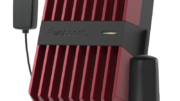Time on the water is supposed to be time away from it all, right? That’s the theory but the real truth is that we don’t want to be disconnected. We just want to choose when to connect. When we have the option to look at our phones, we feel empowered and safe. Without that option we feel disconnected and scared. I don’t make the rules, I’m just reporting them. Here in 2020 most of us really want to be connected to the world at large especially when we’re physically disconnected.
The summer of solitude
As the spring gave way to the summer, many of us thought that we’d be returning to large group activities. But, it hasn’t quite worked out that way. So, anyone who’s able has chosen to get an RV or a boat and set out for greener (or bluer) pastures. It’s a smart way to stay safe without sacrificing everything that makes summer special.
And yet, as we head out on the open sea, confident in our abilities, we might notice something wrong. Even 3-5 miles out to sea we might get great cell reception on deck. But, move into the cabin and things change. Two bars of service will get you where you need to go while outside, but down in the galley you’re seeing “no service.” This is a really common problem.
Your boat is the problem.
Well, not just your boat. It’s the construction of boats in general. Pretty much everything about the construction of a boat is going to repel signals. I mean, everything. Here are some examples:
Basic construction and frame
Whether your boat is framed in wood or metal, that framing is still going to be a problem. Metal is going to repel those signal completely, and hardwoods do almost the same thing. A lot of signal is just going to bounce off the framing of the boat.
Fiberglass skin
For the most part fiberglass is pretty good about letting signals through. But, if the boat’s fiberglass outer skin is reinforced with anything at all to improve its durability, chances are that reinforcement is going to block signals.
Decking and paneling
Varnished hardwoods and brass accents look great. But, they block signals really really well. Keep in mind that a lot of that signal is going to come in from above the cabin, and that means it’s got to pass through a hardwood deck. That deck might also have asphalt on it to help you keep your footing, and that asphalt is a problem, too.
Wiring and conduits
There’s an awful lot of wiring in a modern boat and in order to keep it working, it’s in watertight conduits. That means a lot of metal in the walls and that metal is going to bounce signals back rather than let them through.
What can be done?
Luckily there is a solution. You can put a cellular signal booster on your boat and run its external antenna up to the highest point on the boat. That means it will get the best possible signal outside and then pipe that signal inside. While there are signal boosters designed specifically for boats, the truth is that any booster designed for an RV or large vehicle will work as well. Even better it won’t carry that price penalty that always seems to come with products that are “marine rated.” Cell boosters run off low voltage and the antennas are designed to be outside. So, it’s perfectly safe to use an RV booster on your boat.
Call the experts now at 888-233-7563 or fill out the form below. Or, shop for the great selection of cellular signal boosters now at SolidSignal.com.



